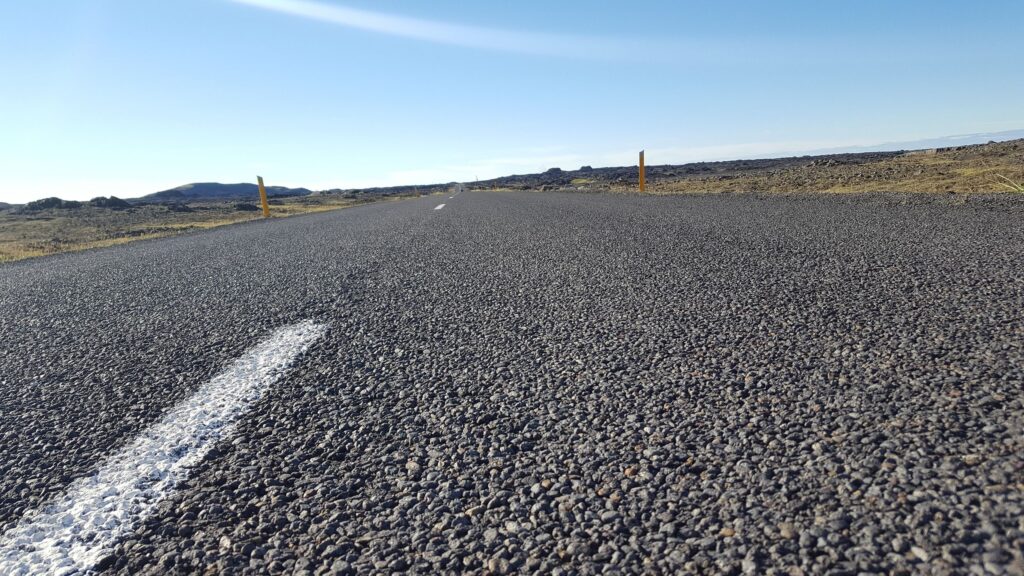Chip Sealing

What is Chip Sealing?
When it comes to paving or repairing a driveway or road, asphalt is the most common material that comes to mind. Tar and chip paving, on the other hand, is a less well-known option. This method, also known as chip seal, is much less expensive and faster than the asphalt option. Its price, on the other hand, does not reflect the aesthetic value it adds to any home and its surroundings.
Chip Sealing is another method of applying a new roadway layer on top of an existing one.. The chip sealing process involves the use of an asphalt distributor, which applies a thin layer of asphalt followed by a layer of smaller aggregates known as chips. After the layers have been applied, a roller is used to ensure that they are adhered to each other.
Request A Quote for Your Paving Project
Chip Paving Process
STEP 1: Prep
The surface of your driveway is prepped prior to laying down the tar-and-chip. Preparation varies depending on the surface being paved, but generally includes sweeping and blowing to remove debris, sealing any existing cracks, and mending the surface in general to allow for the settling of a smooth tarmac.
STEP 2: Install
A specialist distributor truck applies liquid asphalt to the newly prepared surface to ensure that the asphalt laid down is consistently coated and at the proper temperature. Following that, while the asphalt is still hot, chipped stones are spread to allow them to easily adhere to the asphalt.
Chipped stones can be selected to fit the area surrounding the driveway, providing a natural, aesthetically pleasing finish to the entire area. Make sure to consider all of the gorgeous colour possibilities and choose the one that best complements your home!
Finally, a steamroller is used to fully incorporate the chipped stones in the asphalt. The tar-and-chipped driveway is nearly instantly ready to be stomped on, making it both time-efficient and convenient, as well as aesthetically beautiful.
STEP 3: Maintenance
A tar-and-chip pavement requires essentially no upkeep. Unlike asphalt pavements, it does not need to be sealed on a regular basis. Furthermore, because of the gravel base, tar-and-chipped driveways give excellent traction for your vehicles, as the fraction generated by the chipped stones reduces the possibility of slipping.
Loose chipped stones may need to be swept back; however, in hot weather, the loosened stones will normally find their way back into the warm tarmac and the driveway will mend itself.
Snow ploughing is one potential issue. A shovel can harm a part of the sidewalk due to individual chipped stones sticking out of the tarmac. You may avoid this by ensuring that the snowploughs does not come into close touch with the driveway throughout the procedure.

Why choose Chip Sealing for your Project?
- It enables you to construct and maintain roads at a lesser cost.
- Because of its rougher surface, chip sealing provides improved skid resistance and winter traction, which is useful during black ice and wet road conditions.
- It acts as a moisture barrier for the underlying pavement, preventing precipitation and melting snow from penetrating.
- Chip sealing improves safety by providing a more reflective surface for driving at night as well as an anti-glare surface in wet snow.
However, how you clean a chip-sealed road or driveway in the winter might have an impact on its durability. That rougher surface, while excellent for traction, is not suitable for snow removal with a plough. If used incorrectly, this type of equipment might cause damage to the surface.
Request A Quote for Your Paving Project
Chip Sealing FAQ
Is Ongoing Maintenance Necessary?
- One significant advantage of tar and chip paving is that it requires little to no upkeep.
How Long Does It Take To Complete The Process?
- Every project is unique, but on average, it takes 2 – 3 days from start to end.
How Long Is It Going to Last?
- The paved surface should endure between 7 and 10 years, depending on weather conditions. After this, you should add another layer of tar and chip.
What is the price?
- The key advantage of tar and chip pavement is that it is nearly 50% less expensive than asphalt. The ultimate cost, like with other paving projects, will be determined by the amount of surface being paved.
